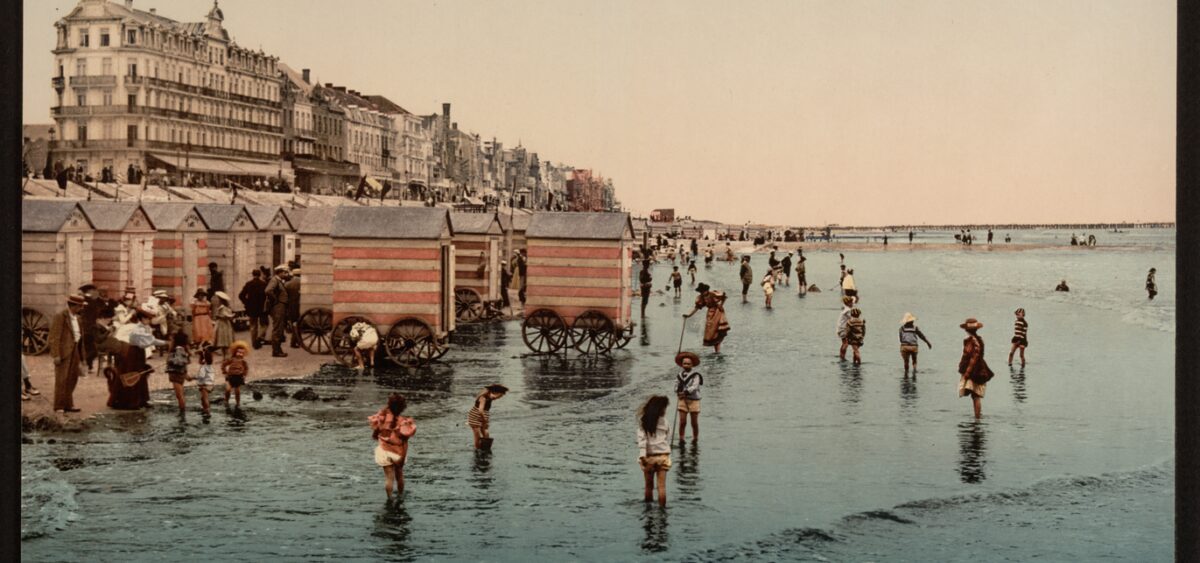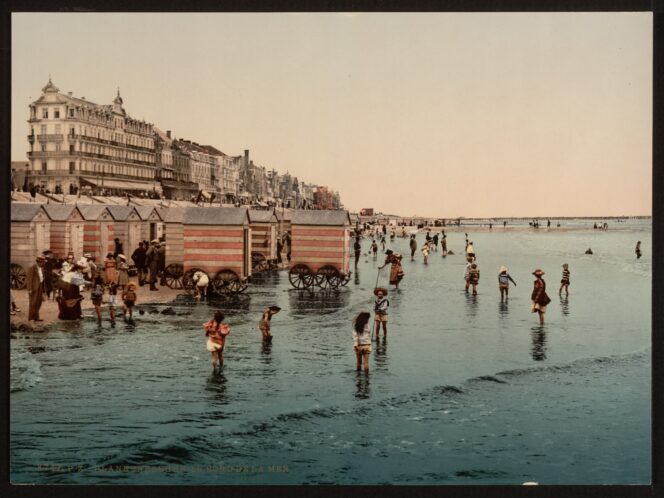
Max Frisch liked to swim. In his diary, he recorded an anecdote about the time he once went to a lake with Bertolt Brecht. For Brecht, nature was something alien – before he decided to get into the water, Frisch had already swum a good few lengths. The list of swimmer writers and intellectuals is long. Before the war, Czesław Miłosz would go to the Legia swimming pool in Warsaw and later, at the University of Berkeley where he lectured, he swam almost every day. Agnieszka Drotkiewicz talks to the editor of the weekly Kultura Liberalna, Piotr Kieżun – a big fan of both literature and swimming.
Agnieszka Drotkiewicz: You run the blog “Świat wpław” [Swimming Through the World], devoted to various aspects of the history of swimming. Let’s start at the beginning, that is, in ancient Greece…
Piotr Kieżun: One would think that swimming was an important element of life back then: an athletic society surrounded by the sea, fighting wars with the Persians on the water, etc. And yet, when I began to research this topic, it turned out that none of the four largest Olympic Games organized in ancient Greece included swimming as a discipline. The Greeks did not swim competitively, they did not race. Admittedly, swimming as a sport competition appears in Pausanias of Athens when he describes local competitions during the games organized in honour of Dionysus. However, when we look at the etymology of the word kolymbos – ‘swimming’ – it turns out that its first meaning is ‘diving’. So there is no question of races, but at best diving. A small disappointment but – as happens in studies of ancient Greece – Plato comes to the rescue. In The Laws, he provides a definition of a foolish man: a fool is a man “unlettered and unable to swim.” This sentence gives food for thought, because once we realize that this is not Plato’s philosophical truth, but a common Greek saying he is quoting, it would mean that the Greeks – despite the fact that they did not race in competitions – mostly knew how to swim. After all, they did not consider themselves a nation of fools.
„Nurek z Paestum” z tzw. grobowca nurka, Paestum, Włochy, 480-470 p.n.e. (fragment). Źródło: Wikimedia Commons
And then – a long, long break in the histo








